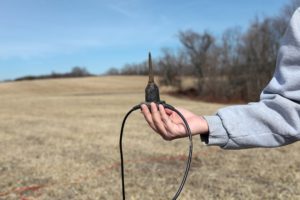All Categories
Featured
Table of Contents
Geophysicist Salary And Job Description 2023 in Champion Australia 2023
This work is progressively contracted out, so consultancies supply another source of employment. Consultancy firms differ in size, from very little business to large multinationals. Some consultancies are quite specialised in using particular geophysical strategies or operating in specific locations, while others use a more diverse range of services to their customers.
The extraction of gas from landfill sites is another location of work and this may grow in the future. Exploration companies may carry out work for building and construction firms, public utility, mining companies and environmental firms, so geophysicists might be employed in any of these settings. Other companies include: geological surveysgovernment bodies and agenciesuniversities and research institutes.


Vacancies might be listed in the oil and gas sector press. Recruitment is impacted by oil price fluctuations and the level of competition for positions differs depending upon this. Careers Days, which cover the full series of geoscience professions and are generally participated in by a variety of essential industry employers, are run by The Geological Society.
Geophysical Survey Techniques And Methods in Willetton Oz 2020
A few of the large oil and gas companies use a complete two-year structured training program across the breadth of geophysics, consisting of the opportunity to experience operate in various groups before specialising in one location. Your training might include work on: existing wellsmagnetic and gravitational prospective field information analysisresearchrock analysis. It's more typical for your initial training to be offered on the job.

There might be a probationary period during which you work together with an experienced colleague. Competency-based appraisals occur frequently in a lot of firms. In smaller sized firms, and for scholastic posts, there is not likely to be any official training - you'll be expected to start work straightaway and select up skills as you go along.
If you work for a smaller sized business, you may discover that you need to take responsibility for organizing and funding your own advancement and training. If you have a geology degree, subscription of The Geological Society can be helpful for networking and for maintaining to date with the industry.
Geological And Geophysical Surveys in Cooloongu Aus 2022
You may likewise discover it helpful to sign up with the PESGB (The Petroleum Expedition Society of Great Britain, which has a geophysics special interest group. After a probationary period, and as soon as you have actually gained some experience, you might progress to senior geophysicist, then group leader and after that into a senior role in management.
The ease of movement in between functions depends on the company structure. Study at Masters or Ph, D level in a subject associated to geophysics or geosciences may assist with your career development and progression. The employment market within the oil and gas market is really reliant on price and this might affect your opportunities for profession development.
Not all tasks are reliant on the oil and gas industries. For knowledgeable geophysicists, freelance consultancy offers a great path for profession advancement. You can also specialise in a particular location of geophysics. As a geophysicist, you're most likely to have numerous tasks throughout your working life. International movement is vital for dealing with peaks and troughs in different nations at different times.
Geophysical Survey Equipment - Ground Penetrating Radar in Atwell WA 2023
From geophysics, it's possible to focus on seismology (completing more training to become a seismic interpreter) or to move into related areas such as engineering geology or risk prediction.
Deciding what to study in college is a tough option. Even if you understand that your field of interest lies in science, what program of research study is right for you?
However the initial step to attaining your goal of becoming a geophysicist is earning a degree. Even for entry-level positions in the field of geoscience, you'll need a bachelor's degree (a geophysicist college degree) from a certified college or university. Some research positions need candidates to hold master's degrees or even Ph.
What Does A Geophysicist Do: Duties And Responsibilities in Doubleview Australia 2023
Doctoral degrees are especially crucial if you prepare to teach at a four-year organization. Geophysicists use physics concepts and techniques to study the gravitational, magnetic, and electrical fields of the earth. This furthers scientists' understanding of both the planet's interior core and its surface. Geophysicists should be able to: examine rocks, photos, and other pieces of information carry out research study both in the field and in laboratories develop maps and charts of their findings compose reports To accomplish all this, trainees need a specialized education for geophysicist careers.
As stated above, you'll need a bachelor's degree in geoscience or a related discipline, such as a physical science or a natural science, to land an entry-level task. Students can likewise prepare by majoring in topics like: Biology Chemistry Computer system science Engineering Mathematics Physics The above geophysicist majors offer a more generalized approach to a single clinical discipline, however a lot of programs need trainees to take one or more geology course.
Table of Contents
Latest Posts
How To Become A Geophysicist in Pickering Brook Aus 2023
What Does A Geophysicist Do? Role & Responsibilities in Wembley Downs Western Australia 2023
Geophysical Surveys As Landscape Archaeology in Shelley WA 2021
More
Latest Posts
How To Become A Geophysicist in Pickering Brook Aus 2023
What Does A Geophysicist Do? Role & Responsibilities in Wembley Downs Western Australia 2023
Geophysical Surveys As Landscape Archaeology in Shelley WA 2021